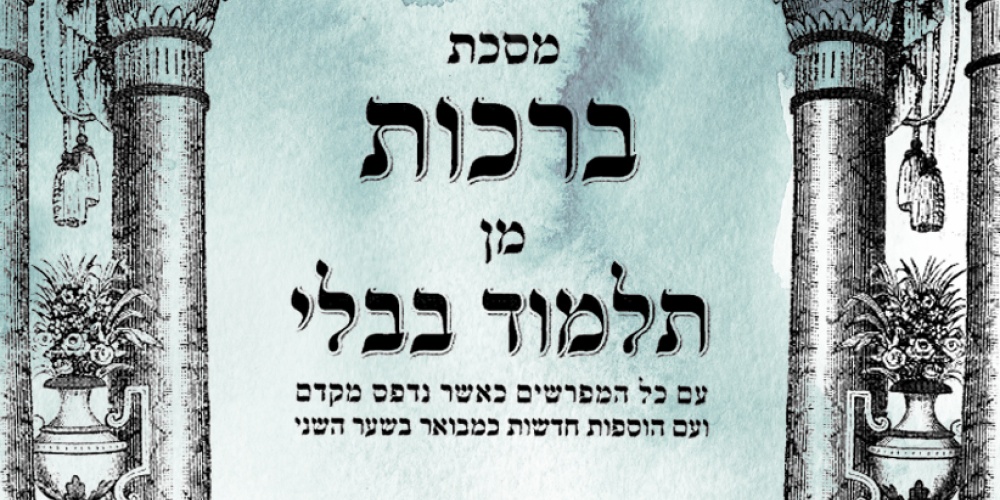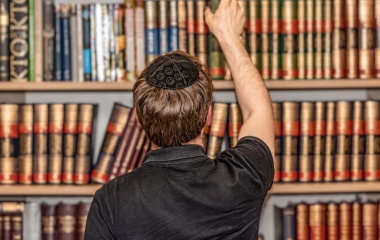
“Rav Hamnuna said: How many important halakhot can be derived from these verses of the prayer of Hannah?” (Brachot 31a).
The image one conjures up when one thinks of Channa is that of a most pious woman, spilling her heart to G-d, so engrossed in prayer that she is oblivious to her surroundings. It is she who teaches what proper kavanah is all about. “’And Channah spoke in her heart’—from here we learn that one who prays must focus their heart to heaven”. It is she who teaches that G-d hears the most silent of prayers: “’And her voice could not be heard’—from here [we learn] that it is forbidden to raise one’s voice in prayer”. So engrossed in prayer was she that those watching her swaying back and forth thought that she was drunk.
While Avraham, Yitzchak and Yaakov may have instituted the concept of prayer, it is Channah who teaches us how to pray. It is her prayers that are front and centre on Rosh Hashanah, the Day of Judgment. We say nine brachot because, and only because, Chana invoked G-d’s name nine times in prayer. In other words, Channa is the source of malchiut, zichronot and shofarot. It is her prayer for a child that serves as the haftarah on the first day of Rosh Hashanah.
And yet Channa was no meek woman timidly beseeching G-d for a child. She actually threatened G-d that if He would not grant her a child, she would (mis)use the Torah in order to force G-d’s hand. “’Im ra’oh tireh, O Lord of Hosts, if You will look, look upon the suffering of Your maidservant’—Rabbi Elazar [following the view of Rabbi Yishmael] said: Channah said before the Holy One, Blessed be He: Master of the Universe, if You will look upon [ra’oh] me now, fine, and if not, in any case You will see [tireh]" what I will do (Brachot 31b).
The Gemara explains that Channa said that if she were not granted a child, she would go and seclude herself with another man, leading her husband Elkana to accuse her of adultery. She would then have the status of a sotah, requiring her to endure the sotah ordeal, which in turn demands the erasure of the name of G-d to prove her innocence[1]. She would then be granted the Torah’s stated promise, “But if the woman has not defiled herself and is pure, she shall be unharmed and bear seed” (Bamidbar 6:28). Channa could tell G-d that He had to grant her a child, so that “You will not make Your Torah false”.
Rabbi Akiva argues that this just cannot be; it is just not possible that Torah can be taken advantage of in this matter. Rather, the double use of the expression roeh tireh is merely a literary manner of speech, and “the Torah speaks in the language of man”. It must be that the Torah's promise of children is for additional children—granted only to those who have already had children.
This is a fascinating reversal of the generally held views of Rabbi Akiva and Rabbi Yishmael. It was Rabbi Akiva who would darshan, expound, upon every “et” in the Torah, who would derive “mountains and mountains of laws” from the crowns that adorn the letters of the Torah. Yet advocating such an approach in this instance was not something Rabbi Akiva could countenance. Hence, he was forced to deviate from his normal method of interpretation. And it was Rabbi Yishmael who usually argued that the Torah speaks in the language of man. But in this case, the double use of the word yireh, to see, allows a much broader interpretation.
While Channa threatened to “sin”, at the same time, she pointed out to G-d how truly righteous she was, and hence deserving of a child on merit alone. “Rabbi Yossi, son of Rabbi Chanina, said:…Channah said before the Holy One, Blessed be He: Master of the Universe, You have created three criteria for death in a woman…nidah, cḥallah, and lighting Shabbat candles. Have I ever violated one of them?”
Strikingly, the name Channa itself can be read as an acronym for challah, nidah, hadlakat haner[2]. As is the norm regarding Biblical names, her name reflected her essence.
Channah was not finished complaining to G-d. “Rabbi Elazar said in the name of Rabbi Yosei ben Zimra… She said before Him: Master of the Universe, of all the organs You created in a woman, You have not created one in vain. Eyes to see, ears to hear, a nose to smell, a mouth to speak, hands with which to perform labour, feet with which to walk, breasts with which to nurse. If so, these breasts that You placed upon my heart, why? Are they not to nurse with them? Grant me a son and I will nurse with them”.
This teaching of Rabbi Elazar in the name of Rabbi Yosei ben Zimra is followed by a teaching that for one who fasts on Shabbat, “even an evil decree 70 years in the making is ripped up before him”. It is most difficult to fast when all around are enjoying a nice Shabbat meal. This added difficulty makes one who fasts as an act of repentance worthy of great reward.
The discussion regarding Channa has presumably ended, and this unrelated teaching is placed here because it too is taught in the name of Rabbi Yosei ben Zimra, the author of the previous teaching regarding Channa. This is a common editorial technique, especially important in a tradition that was taught orally.
However, if one digs a bit deeper one realizes that there is much more than a common source that unites these teachings. Immediately following this teaching regarding fasting, Rabbi Elazar notes the obvious, that Channa “spoke inappropriately before G-d”. Our Talmudic editors recorded this seemingly unrelated teaching of Rav Yossi ben Zimrah to teach that even if Channa spoke inappropriately, it was necessary and hence, “appropriate” to do so.
Rav Yossi ben Zimrah’s teaching has a second half. Fasting on Shabbat may be worthy of great reward; ”nonetheless, we go back and punish him for violating oneg Shabbat.” There is a mitzvah to experience delight on Shabbat, something contradicted by fasting. One may be doing a great mitzvah by fasting and yet, at the same time, the G-d of justice must mete out punishment for fasting on Shabbat. Apparently, sometimes the right thing to do is to do something wrong—and suffer the consequences[3]. “What is his remedy to atone and avoid punishment? Rav Naḥman bar Yitzḥak said: He must fast another fast for the fast [of Shabbat]”[4].
Channa spoke inappropriately towards G-d. But what choice did she have? She desperately wanted a child and saw no other way to do so. And her prayers worked[5]. Not only was she blessed with a child, this child was the equal to Moshe and Aharon: “Moses and Aaron among His priests, and Samuel among those who call His name.”
Channa may have spoken inappropriately to G-d—and did not Avraham do the same?—yet despite such, or perhaps because of such, she serves as our model for how to pray. She may have been “silent”, with only her lips moving, but what a powerful message she conveyed.
[1] The term used when the husband, suspecting infidelity, warns his wife not to be alone with another man is kinui, jealousy. It can be no coincidence that his idea is alluded to in the name of Channa’s husband, Elkanaah. Channa threatened to make her husband act out his name by being “zealous for G-d.”
[2] In a similar vein, henna, the dye put on Moroccan and Yemenite brides in celebration of their upcoming wedding, also stands for challah, nidah and hadlakat haner.
[3] The Biblical precedent for this is Yaakov, who had little choice but to steal the blessings from Eisav, but suffered the consequences the rest of his life.
[4] One might also suggest that these teachings are linked to help raise awareness of and sensitivity to the suffering a barren woman feels. While all understand the pain of hunger—made worse when all around people are eating gourmet meals, we often don’t feel the pain of the woman who desperately wants a child—a pain made worse when all around her people play with their children. I thank Rabbi Jonathan Ziring for this insight.
[5] As to Channa’s punishment, the Gemara records that Shmuel rendered halachic decisions in the presence of his teachers and was thus worthy of death. It was only through the arguments of Channa that his life was spared.



